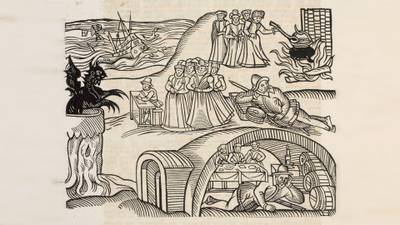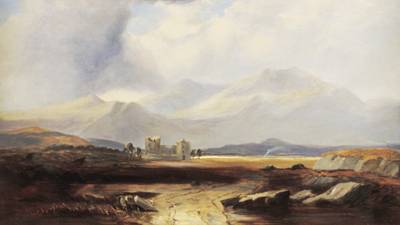Develop your understanding of cultural heritage and memory transmission.
Join experts from a range of disciplines for this Masters-level online short course.
You’ll learn about memory transmission and different types of cultural heritage – local and global, material and immaterial.
You’ll examine and learn to debate:
- the political and community stakes involved in different types of heritage
- how we, as societies and individuals, define our identity through cultural memory
- key notions in the field of collective memory, cultural heritage, and the politics of memory in post-conflict contexts.
You’ll be supported by specialists across disciplines, providing teaching and insight from areas including cultural studies, history, art history, museum studies, archaeology, languages, film and visual culture, anthropology, and politics.
Who can join this online cultural heritage course?
This interdisciplinary course is open to graduates from any discipline.
It’s ideal learning for anyone interested in exploring:
- a specific personal heritage
- questions of memory policy
- careers in the field of memory transmission and in the heritage, museum or community sectors.

Build credits towards a postgraduate qualification
This short course is part of:
You can use the credits you earn on this course towards either of these postgraduate qualifications.
What you’ll study
In this course, you’ll learn about important concepts, concerns, and current approaches to heritage and memory transmission.
You’ll develop skills in theoretical and critical debate, and apply these to the study of a set of cultural case studies.
Case studies will range from the Holocaust to postcolonialism and across a range of geographical and socio-political contexts.
Topics you’ll study
You’ll cover topics including:
- places of memories
- practices of commemoration
- monuments
- tangible and intangible heritage
- collective memory
- trauma studies, and
- issues of decolonisation.
Diverse perspectives
This course invites you to engage with diverse viewpoints and culturally wide-ranging material. You’ll focus on our handling of the past and also engage with discussions around decolonisation.
Tailor your learning to you
This flexible course offers up a range of topics and allows you to choose areas of particular focus.
You’ll study both theoretical and cultural texts, and can pursue further research on specific texts and topics that interest you.
Content advice
The content and discussion in this course will cover themes that some students may find upsetting, including: questions of memory around issues of racism, slavery, conflict, and antisemitism; and difficult histories, from the Holocaust to postcolonialism.
This content advice is here to prepare you for the discussion of these topics. The classroom will be made a space to engage sensitively with this content in an academic context. Confidential and impartial support is also available from the Student Advice and Support Office.
By the end of this course, you’ll be able to...
-
Describe key concepts, issues, and approaches in the fields of memory studies and research into personal and collective heritage.
-
Discuss the role of personal and collective memory in transnational processes of commemoration and heritage.
-
Apply critical reading skills to theoretical and cultural texts.
-
Select, evaluate, and organise primary and secondary material.
-
Synthesise material from disparate sources, and take account of the wider cultural context of topics under consideration.
-
Conduct independent investigations using a range of research methodologies.
-
Understand and use a range of analytical frameworks.
-
Articulate your views more confidently in speech and writing.
Choose the University of Aberdeen for cultural heritage courses online
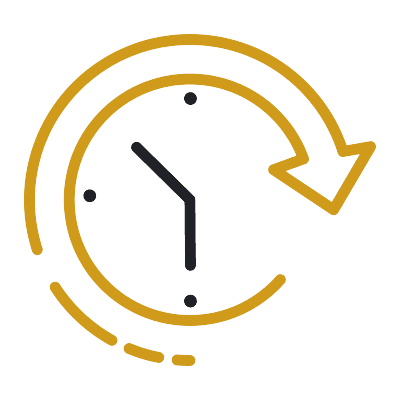
Fits around full-time work
This online course fits around work, with flexible hours and 24/7 study access.
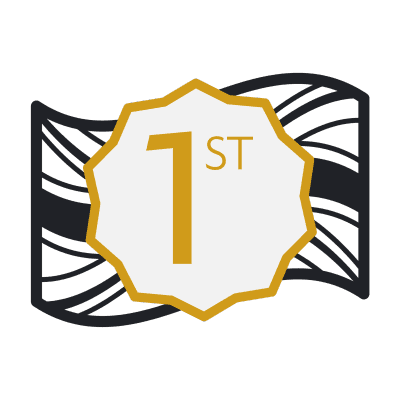
1st in the UK for History of Art
We’re ranked 1st in the UK for positive student responses in the 2025 National Student Survey.
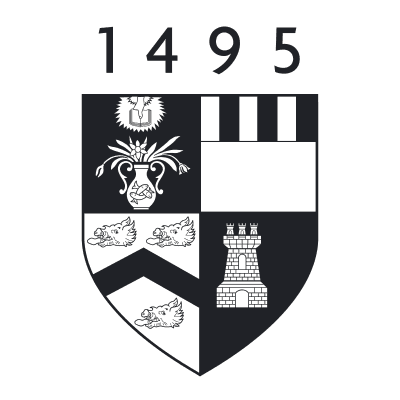
Over 525 years of excellence
Study with the fifth-oldest university in the English-speaking world, founded in 1495.
How you’ll study
Online learning
This distance-learning course in cultural heritage and memory is delivered flexibly, 100% online.
You can learn with us anywhere, no student visa required, and manage your study hours to suit you.
Your teaching
This course is taught at Masters level.
Teaching is delivered through MyAberdeen, our online Virtual Learning Environment (VLE). It holds all the materials, tools and support you’ll need in your studies. Take a look around MyAberdeen.
You can access your learning materials on computer, smartphone and laptop, 24 hours a day. You’ll find a range of online resources available, including:
- videos
- pre-recorded video lectures
- slide shows
- reading materials
- discussion boards with your tutors and peers
- online access to our award-winning Sir Duncan Rice Library.
Your tutors
This interdisciplinary course is delivered by the School of Language, Literature, Music and Visual Culture, the School of Divinity, History, Philosophy and Art History, the School of Social Science, and the School of Geosciences.
You’ll learn from a team of academics, from fields including cultural studies, history, art history, museum studies, archaeology, languages, politics, anthropology, and film and visual studies.
Despite the online nature of the programme, there was a high level of connection and engagement with instructors.
Grace Seeley, Freelance Writer, PgCert Heritage and Memory Studies student
Your tutors
This interdisciplinary course is delivered by the School of Language, Literature, Music and Visual Culture, the School of Divinity, History, Philosophy and Art History, the School of Social Science, and the School of Geosciences.
You’ll learn from a team of academics, from fields including cultural studies, history, art history, museum studies, archaeology, languages, politics, anthropology, and film and visual studies.
The professors that contribute to this programme come from a variety of departments and specialties, which provides for fresh ideas and shows students the career possibilities that exist within this sphere of academia.
Grace Seeley, Freelance Writer, PgCert Heritage and Memory Studies student
This course is assessed online.
You’ll be assessed throughout the course via:
- an essay (worth 50% of your final course grade)
- a presentation (20%), and
- a design project (30%).
This course totals approximately 300 hours of study and assessment time.
That’s around 15 – 20 hours per week in regular topic work and independent study, with more time required around assessments.
This is an indicative guide to the time required for a typical student at this level to achieve the learning outcomes. This includes time for independent study, as well as teaching and assessments.
You can largely set your own study hours to cover the materials. MyAberdeen is available 24/7, so you can log in and study when it suits you.
Activities at fixed times
There may be some activities scheduled at fixed times, such as online meetings with your tutor or assessments with deadlines. But otherwise, you can access and work through the course at your convenience.
Our first-class support structure will ensure that you aren’t alone in your studies. You’ll have contact with your coordinator via email, MyAberdeen and Microsoft Teams. You can use social media and discussion boards to chat with your fellow students too.
We provide a wide range of services to support you in your studies and beyond:
- Careers and Employability Service
- Disability support
- IT support
- Library support
- Student Support Service – help with finances, wellbeing, and non-academic issues
- Student Learning Service – study skills support and advice
- Aberdeen University Students’ Association (AUSA) – run by students for students
- Toolkit – clever apps and free training that can make your study life easier
Wherever you are in the world, you’ll feel part of our very special Aberdeen learning community.
Your course coordinator

Dr Fransiska Louwagie
Fransiska is a Senior Lecturer in French and Francophone Studies. She holds a PhD in French (post-) Holocaust literature.
Fransiska’s research combines literary studies with a range of interdisciplinary perspectives. In particular, she has worked on survivor narratives and the representation of the Holocaust in contemporary Francophone fiction and comics. She also works on other contexts, such as Rwanda and South Africa.
She has undertaken various research collaborations in the field of drama and the visual arts, particularly graphic novels, post-Holocaust art and political cartooning.
View Fransiska’s profileWhere this will take you
Towards a postgraduate qualification
You’ll earn 30 credits at Masters level (SCQF Level 11) with this course. You can use these credits towards our online:

MSc Cultural Memory, Heritage and Society
Build your academic skills in memory, heritage and social studies. Tailor your degree programme to your own interests.
View MSc Cultural Memory, Heritage and Society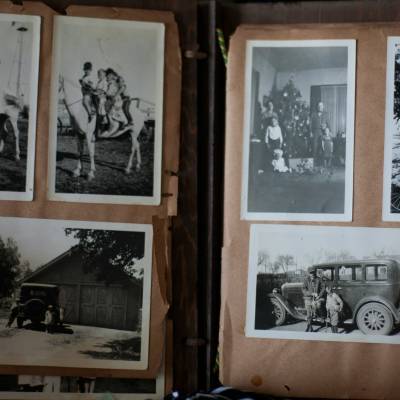
PgCert Heritage and Memory Studies
Develop your skills in the theories and approaches used in researching memory and heritage, and explore issues of remembering the past in the modern world.
View PgCert Heritage and Memory StudiesI have really enjoyed my time working on PgCert Heritage and Memory Studies. Whether you’re new to Memory Studies or not, this programme will introduce you to theories, interdisciplinary concepts, and case studies that will fundamentally impact the way you view the past, present, and future.
Grace Seeley, Freelance Writer, PgCert Heritage and Memory Studies student
Careers
This course is designed to help you progress in or towards careers in areas including:
- the heritage, museum or community sectors
- local government
- consultancy.
Continuing Professional Development (CPD)
Your employer or professional institute may recognise this course for CPD hours. Talk to your employer or institute to find out more.

Free career support
Access our free careers service while you study.
- 1:1 appointments
- CV checks
- Interview prep
- Job opportunities
Choose the University of Aberdeen for flexible online courses

You’re in expert hands
We’ve been delivering online and distance learning for decades.

Learn anywhere
On smartphone, desktop and laptop, with no need for a student visa.

20% alumni discount
University of Aberdeen alumni get 20% off fees for this online course.
Entry requirements
Entry requirements
We welcome students from all over the world.
This course has no formal entry requirements. You do not need to provide proof of your qualifications.
But you do need to check the entry guidance above to understand the level of teaching delivered, to decide if this course is right for you.
If you do not have qualifications from the UK, check the equivalent teaching level for your country.
Visa requirements
You do not need a student visa to study online with us.
English language requirements
Teaching is delivered in English.
You do not have to provide proof of your English language skills to join this course. But we want to make sure that you can use English well enough to study successfully.
Recommended level of English
This course uses our Postgraduate Higher level of English language proficiency.
These are our Postgraduate Higher requirements, and these are minimum scores.
IELTS Academic, IELTS UKVI Academic, or IELTS Online (not IELTS Indicator or IELTS General Training)
- 6.5 overall
- 5.5 for listening and speaking
- 6.0 for reading and writing
TOEFL iBT or TOEFL iBT Home Edition
- 90 overall
- 17 for listening
- 21 for reading
- 20 for speaking
- 21 for writing
- TOEFL DI code is 0818
Cambridge English: B2 First, C1 Advanced, or C2 Proficiency
- 176 overall
- 162 for listening and speaking
- 169 for reading and writing
LanguageCert Academic / LanguageCert Academic SELT
- 70 overall
- 60 for listening and speaking
- 65 for reading and writing
Oxford ELLT Digital – English Language Level Test Online
- 7.0 overall
- 5.0 for listening and speaking
- 6.0 for reading and writing
PTE Academic (online test not accepted)
- 62 overall
- 59 for listening, reading, speaking and writing
Skills for English: SELT
- B2 pass with merit
Duolingo – tests taken from 1 July 2024 onward
- 120 overall
- 95 for listening and speaking
- 105 for reading and writing
University of Aberdeen English Pre-sessional Programme (PSE)
- Pass
- Valid for one year. Refresher can be offered if out of date
Pre-sessional academic English preparation programmes undertaken at other UK universities
- Pass at an equivalent of 6.5 (C1)
- B2 in all four skills
- Certification must be within one year prior to the start of your course
For more information about language qualifications see our English Language Requirements page.
You will need access to:
A computer (PC, laptop or Mac) with an up-to-date operating system
Most teaching materials are smartphone- and tablet-friendly. But we recommend a proper laptop or desktop for completing assignments comfortably.
Reliable internet access
We recommend:
- a wired connection
- a minimum download speed of 2 Mbps so you can take part fully in live sessions.
Speakers or headphones
- We recommend a headset with built-in microphone and earphones if you’re likely to study in an environment with background noise.
- A webcam is optional, but you may like to use one for some interactive sessions.
Software
We’ll give you access to Office365 applications. This means you can use online versions of Microsoft Word, Excel, PowerPoint and OneDrive and install these programs on up to five personal devices.
If your course requires specialist software, we’ll provide you with access to this and a licence that lasts throughout your studies.
See our detailed IT requirements for more information.
When you study with us, you can expect a first-class support structure so that you’re never alone in your studies.
But learning online does mean you have to motivate yourself and manage your own time.
Your most important commitment will be time – the time to work through, reflect on and understand your teaching materials.
Before you start a course that involves a high degree of independent study, we recommend looking at the time you will be able to devote to your studies each week:
- Be realistic
- Create a weekly schedule as a guide
If you have any questions about studying online, get in touch with our friendly team. We’re here to help.
Fee payment
Your course fee needs to be paid in full before you start your course.
We accept payment via Visa Debit, Visa Credit and Mastercard.
Ways to save
You may be able to get help funding this course via:
- discounts – if any discounts are available for this course, they’ll appear in the section below
- employer sponsorship – we accept full and partial fee payments from sponsors.
Find out more about funding options.
Student card
All our students are entitled to a University of Aberdeen student card. This gives you access to a range of student discounts around the city and online.
Learning resources
Access to all the books and resources you need are included in your tuition fee. They’ll be made available to you online and you do not have to buy your own copies.
Printing
You may wish to set aside a small budget for printing, depending on how you like to work.
This course has no formal entry requirements. You decide if it’s suitable for you.
The course is delivered at Masters level. At this level, you’d usually have at least:
- a 2:2 UK honours degree (or equivalent) in any discipline, or
- relevant professional experience that supports this level of learning.


















